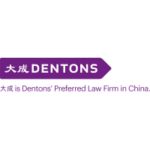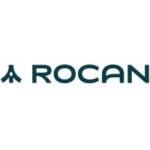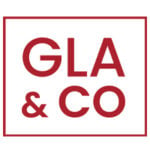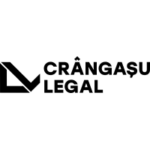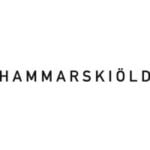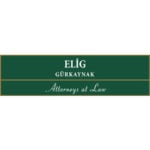-
Overview
The government authorities in charge of merger control in Israel are the Israeli Competition Commissioner (the “Commissioner”) and the Israeli Competition Authority who is responsible for implementing and enforcing the Israeli Economic Competition Law, 5748-1988 (the “ECL“). The Commissioner must consult with the Advisory Committee for Mergers and Exemptions before approving, rejecting or stipulating conditions for a merger. To fall within the boundaries of the merger control regime, a transaction must meet the definition of a “merger of companies”, as well as the relevant filing thresholds.
The definition of a “merger” is relatively broad and, in the Israeli Competition Authority’s view, includes any transaction that grants one company a structural foothold in the management of another company’s business. As detailed below, any acquisition of the main assets of a business, or acquisition of over 25% of certain rights in a company is considered a “merger”.
A “merger of companies” only exists if at least two “companies” are involved therein. The definition of a “company” includes cooperatives and partnerships, and includes a test of nexus to Israel.
Filing thresholds are assessed by reference to the turnover and market share of both merging parties. Turnovers and market shares refer to the entire group of companies under the same ultimate control and relate to activities in Israel solely. Thus, if two groups of companies with nexus to Israel meet the thresholds and perform a transaction outside Israel, they may still have to file in Israel. The thresholds do not contain or include any reference to transaction size or the company’s value.
A merger transaction which falls below all the thresholds is legal per se. Ancillary restraints, such as non-compete clauses, require specific clearance, unless they meet the standards for a specific statutory exemption or block exemption.
If a transaction is deemed a “merger transaction” and meets one of the relevant filing thresholds, filing is mandatory. The Commissioner will oppose a merger if there is “reasonable concern of significant harm” to competition or the public.
The merger transaction cannot be consummated without prior approval from the Commissioner. The commissioner must grant her decision within 30 days of the filing. The 30-day period may be extended by the Commissioner for two additional 30-day periods, and then, after consulting with the Exemptions and Mergers Advisory Committee, 60 more days, up to a total of 120 days beyond the initial 30-day period. Further extensions may only be granted for special reasons by the special Competition Tribunal. The timeline can also be extended voluntarily by the parties, and during the past year this option has been used more often. Illegally consummated mergers are subject to administrative fines, and possibly even criminal charges. In addition, the Commissioner may approach the Competition Tribunal and request divestiture. Illegal mergers are also subject to civil actions, including class actions.
On May 18, 2022, an amendment to the Economic Competition Regulations (Registry, Publication and Transaction Reporting), 2004 merger filing regulations came into effect (the “New Regulations”). According to the New Regulations and the ECL, merger transactions will require the approval of the Commissioner, where the combined sales turnover derived from Israel of the merging companies in the financial year preceding the merger exceeds NIS 414,010,000 in aggregate, provided that the sales turnover of each of at least two of the merging parties exceeds NIS 22,510,000. Other filing thresholds remain unchanged.
The New Regulations have entirely changed the merger notification forms that must be submitted to the ICA: the existing Notice of Merger forms (both the long and the abbreviated forms) have been replaced by a single new form, which significantly expands the scope of required information. In the year since the New Regulations were published, merger notifications have been scrutinized more vigorously for both form and content.
-
Is notification compulsory or voluntary?
Notification is compulsory: a transaction which falls under the definition of a “merger of companies” according to the ECL, and meets one of the relevant thresholds, must be reported. The Commissioner’s consent is required before consummating the transaction. Gun-jumping is enforceable by various measures, including criminal charges and administrative fines.
-
Is there a prohibition on completion or closing prior to clearance by the relevant authority? Are there possibilities for derogation or carve out?
If the transaction falls under the definition of “merger of companies” according to the Israeli Economic Competition Law and meets one of the relevant thresholds, it is illegal to complete the transaction before receiving the Israeli Commissioner’s consent for completion of the transaction. However, if 30 days have elapsed since filing merger notifications and the Commissioner has not responded, the merger is considered approved.
Any action which amounts to carrying out a notifiable merger transaction, or the first steps thereof, prior to receiving the Commissioner’s approval, may, in the Israeli Competition Authority’s view, constitute gun-jumping. Any transfer of actual foothold or involvement in the operations of the acquired company may also be considered gun-jumping. Among other things, under certain circumstances, the following have been deemed gun-jumping:
- A loan or transfer of funds to the acquired business;
- Transfer of shares to trustees who are, effectively, the controlling owners of the acquiring company;
- Transfer of the consideration, or part thereof, prior to the Commissioner’s approval;
- Transfer of risk with regard to the assets prior to the Commissioner’s approval;
- The appointment of officers in the company, including temporary members of the board.
- Limitation on the development of new business during the interim period between signing and Commissioner’s approval (still under hearing).
In international transactions, it is possible to carve the assets and legal entities in Israel out of the transaction, though generally, any carve-out outline will require the Israeli Competition Authority’s approval.
The Israeli Competition Authority does not normally allow exceptions, unless the acquired business is in severe financial distress and may not survive until the conclusion of the review. Thus, the Israeli Competition Authority may allow the prospective acquirer to transfer funds into the prospective target, under certain conditions.
-
What types of transaction are notifiable or reviewable and what is the test for control?
The definition of a “merger of companies” in section 1 of the Israeli Competition Law is an open one, beginning with the word “including”. According to the Commissioner’s Guidelines for Reporting and Evaluating Mergers under the Restrictive Trade Practices Law, 1988 (the “Guidelines“),1 this implies that the “merger of companies” definition has a “wide and general aspect”, which a) does not expressly appear in the definition, and b) includes “any transaction that creates (or significantly strengthens) a substantial and continuous influence link between the decision-making mechanisms of the companies involved in the transaction, either directly or indirectly”.
In addition to this general aspect, the Israeli Competition Law includes a presumption that the following create a “merger of companies”:
- the acquisition of most of the assets of one company by another;
- the acquisition of shares in one company by another, whereby the acquiring company is accorded more than a quarter2 (25%) of one of the below:
- The nominal value of the issued share capital;
- The voting power;
- The power to appoint more than 25% of the members of the board;
- The right to participate in more than 25% in the company’s profits.
The merger of companies definition applies whether the acquisition is direct or indirect or by way of rights accorded by contract.
Footnote(s):
1 The Guidelines were issued under the former name of the Economic Competition Law, 1988.
2 According to The Guidelines, Even the purchase of less than 25% of the shares in the company may be considered a merger of companies. Thus, for example, in cases where the acquirer makes a purchase of less than 25%, but in the circumstances of the case due to the decentralization of the holdings in the company, the restrictive rights he acquired actually give him actual power of influence. Alternatively, in cases where, in addition to the rights acquired by the buyer, he is also given other excess rights. Alternatively, in cases where the acquired rights join the fabric of arrangements between the acquirer and the acquired.
-
In which circumstances is an acquisition of a minority interest notifiable or reviewable?
As mentioned, any acquisition of more than 25% of even one of the rights outlined above constitutes a merger of companies. In the past, the Israeli Competition Authority has not seen a “merger of companies” transaction where less than 25% of the above rights were acquired, unless other factors existed, such as the appointment of company officers or actual involvement in the company’s activities.
According to the Commissioner’s Guidelines, an acquisition that grants less than one quarter of a type of shares in the company may be considered a “merger of companies”, if the limited package of rights that the individual has acquired grants them significant influential power over the target, if they have preferential rights or extensive veto rights.
Nonetheless, when made between competitors, an acquisition or holding of less than 25% may be considered a “restrictive arrangement”, which, under certain circumstances, also requires clearance according to Israeli Competition Law.
-
What are the jurisdictional thresholds (turnover, assets, market share and/or local presence)? Are there different thresholds that apply to particular sectors?
Nexus to Israel
When foreign entities are involved, a “merger of companies” apply if at least two of the parties to a merger transaction are each deemed a “company” under the ECL.
A “company” is defined under the ECL as “a company founded and registered under the Companies Ordinance [New Version], 5743-1983, including a foreign company registered as aforesaid, a registered cooperative society within the meaning thereof in the Cooperative Societies Ordinance, a non-profit organization within the meaning thereof in the Non-Profit Organizations Law, 5740-1980, and a partnership as defined in the Partnerships Ordinance [New Version], 5735-1975.” This is a rather specific definition.
The Guidelines, which represent the Competition Commissioner’s views (which has never been tested in Israeli courts), take a somewhat broader interpretation of the relevant statutory provisions, according to which entity or transaction that meets one or more of the following tests (the “Nexus Test”) will be seen as having sufficient nexus to Israel, such that Israeli merger control regime will apply:
(A)The entity, or any entity under its control, is registered in Israel as a “foreign company”;
(B)The entity, or its ultimate controlling owner, holds, directly or indirectly, (a) more than 25% of an Israeli entity’s issued capital stock; (b) more than 25% of an Israeli entity’s voting power; (c) the right to appoint more than 25% of the Israeli entity’s directors; or (d) the right to receive more than 25% of the Israeli entity’s profits According to the Guidelines, if such entity acquires more than 25% of an Israeli entity, an indirect merger occurs between the entity already held and the newly acquired entity;
(C) The entity is a company that has a representative in Israel (such as an exclusive distributor or a sales representative) over whom the company has a significant control on matters such as pricing or quantities of products sold or inventory or other aspects of the management of the business, whether such control is a result of a written agreement or another arrangement. According to the Guidelines, such entity should be registered in Israel as a “foreign company”, and should not benefit from its failure to register.
The above-mentioned tests refer to the merging entity and all entities under the same ultimate control.
As mentioned, the Nexus Test must be satisfied by at least two parties for the transaction to be considered a “merger of companies”.
Filing Thresholds
If the transaction is a “merger of companies”, and has satisfied the Nexus Test, the transaction must be reported to the Commissioner and receive the Commissioner’s approval prior to consummation, if one or more of the following applies:
- Turnover threshold: the combined turnovers in Israel of the parties to the merger in the balance year prior to the transaction exceeds NIS 414,010,000, and at least two parties each had a turnover in Israel of at least NIS 22,510,000 in the same year;
- Combined market share threshold: the parties’ combined market shares in Israel, will exceed 50% of a product/service market as a result of the merger; or
- Individual market share threshold: one/both of the parties in the transaction has over 50% market share in any market in Israel.
All the thresholds take a “group” view; namely, they refer to the parties to the transaction, as well as to every company controlled by the same ultimate controlling owners. “Control” is defined in the Israeli Competition Law as the possession of more than half of either (i) the right to vote at a company’s general meeting or the parallel body of another corporation, or (ii) the right to appoint the directors of a corporation. Turnover thresholds refer to all company activities, not just the activities in the market relevant to the transaction.
Note that the Israeli Competition Law and the Economic Competition Regulations (Registry, Publication and Transaction Reporting), 2004 (the “Regulations“) do not set an asset threshold to filing in Israel, and whether or not a company has assets in Israel is irrelevant to the thresholds. For example, a hi-tech company may have a development centre in Israel employing several engineers, and still not meet the filing thresholds due to the fact that it has no sales in Israel.
All thresholds refer to activity in Israel only (see our notes below).
In this regard, sellers’ market share and turnovers will not be taken into account if all connections to the acquired company or assets are severed. If some connections remain between the parties once the transaction has been consummated, the sellers’ turnover or market share will be taken into account when assessing the turnovers.
-
How are turnover, assets and/or market shares valued or determined for the purposes of jurisdictional thresholds?
Calculation of turnover
- Turnovers are calculated for the entire group of companies under the same ultimate control. While turnovers, including consolidated turnovers, are calculated according to accepted accounting principles, the question of which entities will be brought into account and included in the consolidated turnovers of the group is set according to Competition laws. That is, all entities controlled by the same ultimate controlling owner, according to the definition of “control” under Israeli Competition Law, will be brought into account, regardless of whether their turnovers are consolidated under accepted accounting principles;
- Turnovers are calculated for Israel only, based on accepted accounting principles. In other words, if an entity’s turnover is brought into account, the relevant figure will normally be the sales turnover as it appears in its financial reports;
- The relevant turnovers are the turnovers in the financial year preceding the transaction; i.e. if a transaction occurs during 2024, the relevant turnover will be the 2023 turnover;
- Sales into Israel from other locations will normally be brought into account, whilst sales from Israel into other territories will normally not be part of the relevant revenue threshold.
Calculation of market shares
The definition of markets, the identification of market participants and the allocation of market shares are always some of the most complex and challenging questions presented by competition laws. Nonetheless, we can highlight some principles that apply in the context of Israeli merger control.
- Market shares refer to the relevant product and geographic market. The full market definition tests are beyond the scope of this essay, but, generally speaking, a relevant market would be one where a hypothetical single actor would be able to profitably raise the price by 5-10% over time without the loss in quantities decreasing its revenues (this is the well-known “hypothetical monopoly test” which is also applied in other jurisdictions).
- The Israeli Competition Authority generally does not provide guidance on market share and market definition issues and the parties must determine the applicability of market share thresholds by themselves. Bona-fide estimates normally suffice in order to determine whether filing is necessary, unless there are specific doubts and concerns that necessitate an expert economic opinion to define markets and measure market shares.
- The market is not necessarily national. If the parties cross the market share thresholds in a distinct geographic market within Israel, filing is required.
The Israeli Competition Authority prefers to measure market shares by the quantity of products sold. However, this analysis may sometimes be irrelevant, especially in highly-variated product markets. The less homogenous the products, the higher the tendency to calculate market shares by revenue.
-
Is there a particular exchange rate required to be used for to convert turnover thresholds and asset values?
Applicable exchange rates are the average exchange rates over the relevant period; normally the financial year preceding the transaction. If representative rates from the Bank of Israel are available for the relevant currency, these will be the determining rates for calculation of the turnover thresholds.
The average Bank of Israel representative rates for FY2024 were:
- US Dollars 70037 NIS = 1 USD
- Euros 0055 NIS = 1 EUR
The average Bank of Israel representative rates for FY2025 (up to September):
- US Dollars 53 NIS = 1 USD
- Euros 93 NIS = 1 EUR
-
In which circumstances are joint ventures notifiable or reviewable (both new joint ventures and acquisitions of joint control over an existing business)?
The same thresholds and nexus tests described above apply to joint ventures, if such joint ventures are considered “mergers of companies”. Generally speaking, a joint venture will be considered a “merger of companies” if joint control is acquired over an existing business, or existing business activities are transferred to the joint venture.
Brand new joint ventures commencing a new joint activity may or may not be described as “mergers of companies” depending on the specific characteristics of the venture. As a rule, the more long-term the joint venture and the more “structural” in nature, the higher the tendency to classify it as a merger of companies.
A joint venture between competitors which does not amount to a “merger of companies” may sometimes be considered a “restrictive arrangement” and require clearance via one of the mechanisms prescribed by the Israeli Competition Law for this kind of transaction, including specific exemptions or block exemptions.
Thresholds will be tested by reference to all parties to which the “merger of companies” definition applies, and will certainly apply to every party that will, following the transaction, hold over 25% of one of the rights [detailed in section 4 above] in the joint venture entity. The threshold tests will include the sellers, unless the sellers sell all holdings and sever all ties to the joint venture. If there are additional parties acquiring less than 25% of the joint venture, the applicability of the thresholds to such parties will depend on their specific involvement in the joint venture, e.g. their ability to appoint officers, their role in the conduct of business of the venture and the like.
Turnovers apply to both the joint venture and its parent companies, and may be satisfied by the latter alone. The Israeli Competition Authority has been known to require filing in cases where the parent companies satisfied the relevant nexus and thresholds tests, even when the joint venture itself was not expected to have any activity in Israel.
-
Are there any circumstances in which different stages of the same, overall transaction are separately notifiable or reviewable?
Generally, a transaction must be reviewed as a whole. Nonetheless, when the merger transaction itself has different stages (e.g., when it includes an option for future sale or purchase) the future sale or purchase does not have to be reviewed with the main merger transaction. However, if the option itself constitutes a merger (i.e., when the first transaction crosses a holding threshold of 25% of a company’s shares, and the option is for the acquisition of over 50% of the shares), it must be reviewed before it is exercised.
In its new merger notification forms, The Israeli Competition Authority allows the parties to request that the Commissioner review options at the time of issuance if they are part of a merger transaction currently under review; the merger must be carried out within one year of the date of approval and the options must be exercised no later than three years from the date of approval (the latter period may sometimes be shorter, depending on the specific competitive circumstances).
-
How do the thresholds apply to “foreign-to-foreign” mergers and transactions involving a target / joint venture with no nexus to the jurisdiction?
The Nexus Tests as applied by the Guidelines are the same irrespective of whether the legal entities acquired reside in Israel. If the nexus test and the filing thresholds apply to a group of companies under the same ultimate controlling entity, the nationality of the specific legal entities carrying out the transaction within the group is immaterial.
According to the Q&A examples document that was published by the Israeli Competition Authority in September 12, 2021, in cases in which (a) the proposed transaction is a purchase of a target that has no nexus to Israel, and (b) the proposed transaction will have no competitive effect on the Israeli market; the merging parties may submit to the Israeli Competition Authority a request to permit them not to file merger notifications (no-action letter). Such request shall include a full disclosure of all relevant details regarding the parties, and the proposed transaction. The Israeli Competition Authority will consider the request and notify the parties whether their request has been approved (pre-ruling). If the parties’ request has been denied – the parties will be required to submit to the Israeli Competition Authority merger notifications with respect to the proposed transaction.
-
For voluntary filing regimes (only), are there any factors not related to competition that might influence the decision as to whether or not notify?
NOT APPLICABLE
-
What is the substantive test applied by the relevant authority to assess whether or not to clear the merger, or to clear it subject to remedies?
The substantive test, as set out in the Israeli Competition Law, is “reasonable concern for significant harm to competition or public” in relation to price, quality, quantity or regularity of supply of a product or service.
The Commissioner discussed horizontal mergers in Opinion 1/11 – Guidelines for The Competitive Analysis of Horizontal Mergers (the “Horizontal Merger Guidelines“). According to the Horizontal Merger Guidelines, the merger review will begin by using a demand-based definition of product and geographic market to identify current participants and market positions. The Israeli Competition Authority will estimate possible unilateral effects and coordinated effects, as well as defences such as merger efficiencies and the failing firm doctrine.
The guidelines indicate that a horizontal merger may raise the Israeli Competition Authority’s concerns and merit further examination when post-merger market shares are high, the merging companies are the closest substitutes, or entry barriers are high. It should be noted that in some cases when evaluating horizontal mergers, the Israeli Competition Authority has been known to use rather narrow market definitions.
The substantive test set by the Israeli Competition Law for vertical mergers is no different from those set for horizontal mergers: “reasonable concern for significant harm to competition or public”. According to Competition Tribunal precedent, vertical mergers are usually perceived as beneficial, although they may raise concerns of foreclosure. The Commissioner rarely objects to mergers based on vertical concerns, but such objections are not unheard of. such concerns may also result in the imposition of remedies.
-
Are factors unrelated to competition relevant?
The Commissioner is only allowed to consider competition factors. Non-competition factors are irrelevant. Nonetheless, efficiency factors may be relevant and will be considered to the extent that the efficiencies are likely to be transferred to the customers thus offsetting the expected harm to competition from the merger.
Some merger transactions will also require a sector-specific approval by a sectoral regulator, e.g. in the fields of telecommunications, natural gas and others. Many infrastructure licenses also require the regulator’s approval for transfer of ownership.
-
Are ancillary restraints covered by the authority’s clearance decision?
Ancillary restraints, such as non-compete clauses, may be considered “restrictive arrangements” and be subject to the general restrictive arrangements chapter of the Israeli Competition Law.
A restrictive arrangement is prohibited unless permitted by one of the mechanisms prescribed by the Israeli Competition Law, i.e. approval by the specialist Competition Tribunal, exemption from such approval by the Commissioner, falling within the boundaries of one of the statutory exemptions set in the Israeli Competition Law itself, or block exemptions issued by the Commissioner.
A non-compete commitment by a seller following the sale of a business in its entirety, in as much as it would constitute a “restrictive arrangement”, is eligible for a statutory exemption when such commitment is “not contrary to reasonable and accepted practices”.
In addition, a specific block exemption has been issued for restraints ancillary to mergers (Antitrust Rules (Block Exemption for Restraints Ancillary to Mergers), 2009), which establishes a self-assessment mechanism exempting agreements:
- Where the main objective is not reducing or preventing competition, and the agreements have no restraints which are unnecessary to achieve their main objective; AND
- Where the restraints do not limit competition in a significant part of the affected market; OR the restraints do limit competition in a significant part of the market but do not have the potential to significantly harm competition in such market.
Under certain conditions, including having 50% or lower market shares in the relevant market or an adjacent market, safe harbours exist for some restraints, including:
- Non-compete commitments, for up to four years starting from the moment when the seller’s share of the acquired business decreases below 20%; or the seller no longer has the right to appoint at least one board member; if the seller is employed in the acquired business after the merger – two years from the moment when their employment is terminated.
- Commitments to continued supply under the same terms (for up to three years).
Other block exemptions may also apply, such as Antitrust Rules (Block Exemption for Arrangements of Minor Importance), 2006, Antitrust Rules (Block Exemption for Non-Horizontal Agreements Which Do Not Contain Certain Price Restrictions), 2013 or, in some cases, Antitrust Rules (Block Exemption for Joint Ventures)(Temporary Order), 2006.
If an ancillary restraint does not come within the boundaries of a block exemption, a specific exemption is required. Nonetheless, the ICA’s current policy is to refrain from reviewing types of transactions that may fall under a block exemption, leaving them to the parties’ self-assessment.
-
For mandatory filing regimes, is there a statutory deadline for notification of the transaction?
Israel has no filing deadline. However, parties to a notifiable merger are prevented from completing the transaction or performing it in any way, including taking initial steps, prior to receiving the Commissioner’s approval.
-
What is the earliest time or stage in the transaction at which a notification can be made?
Filing can be made, at earliest, when the transaction has taken a concrete form in a merger agreement. The Israeli Competition Authority is normally reluctant to review mergers based on a memorandum of understanding and will only do so in exceptional circumstances based on a specific request from the parties. In these cases, according to the Guidelines, the Israeli Competition Authority will start the review, but the 30 days allotted to the Commissioner to complete the review will not start until the full merger agreement, including annexes, is presented to the Israeli Competition Authority. For publicly traded companies, the Israeli Competition Authority will be willing to review a takeover proposal without an agreement, if an agreement does not exist.
-
Is it usual practice to engage in pre-notification discussions with the authority? If so, how long do these typically take?
There are no pre-filing procedures. The Israeli Competition Authority will not normally grant the merging parties specific guidance as to how to fill the merger notifications and not involve itself in the parties’ market definitions. However, the Israeli Competition Authority may return notifications to the parties if it believes they were filled incorrectly, and in such case the 30-day clock is reset.
-
What is the basic timetable for the authority’s review?
The Israeli Competition Law sets out a 30 calendar-day period after filing notification for the review process to take place. If the Commissioner does not issue a decision within this time, it is seen as an approval.
Having said that, while there are no clear statistics on this since 2021, the review of many merger cases takes longer than the allotted 30 days to complete. The timeline is usually extended by the parties on a voluntary basis as elaborated below.
The Commissioner must consult with the Advisory Committee Mergers and Exemptions prior to rendering her decision. Normally, the Committee convenes once every one or two weeks, although it has convened for urgent consultations in the past.
-
Under what circumstances may the basic timetable be extended, reset or frozen?
The 30-day period may be extended by the Commissioner for two additional 30-day periods, and then, after consulting with the Exemptions and Mergers Advisory Committee, 60 more days, up to a total of 120 days beyond the initial 30-day period, all in reasoned notices to the parties. Further extensions may only be granted for special reasons by the specialist Competition Tribunal in Jerusalem. Requests for information do not stop the clock for the review period, regardless of whether they are answered fully or correctly, nor do negotiations with the parties for remedies or interventions by third parties. The Israeli Competition Authority is willing to refrain from issuing a reasoned notice of extension if the parties are willing to grant it a voluntary extension.
If the Israeli Competition Authority finds the merger notifications to be incomplete, the clock is reset until full merger notifications are submitted.
-
Are there any circumstances in which the review timetable can be shortened?
The Commissioner will issue her decision once the Israeli Competition Authority’s review has been completed, even before the 30-day review period elapses.
In 2016, the Israeli Competition Authority publicised a “Bright Green Merger” review track, whereby a review may be completed within a timeframe much shorter than the formal 30-day period, based mainly on the information included in the filings themselves.
For a merger to be reviewed under the “Bright Green Merger” track, the following conditions must apply:
- The merger clearly does not raise reasonable concerns of competitive harm.
- The parties include in their filing detailed additional information to help analyse the merger’s competitive effects, preferably based on objective resources such as industry surveys.
- The merger notifications are signed by the parties’ respective CEOs and chief internal legal counsel, if any. The merger notifications will also represent that any information included in the merger notifications cover letter, which normally details the parties’ competitive narrative, is correct.
De facto, the “Bright Green Merger” track is almost never applied.
-
Which party is responsible for submitting the filing?
The acquiring party and acquired party must each file their own merger notification, describing their own activities, market shares and the like. The Israeli Competition Authority will only start its review when both parties have filed their merger notifications. A rare exception may be made when one party refuses to cooperate in the process, such as in the case of a hostile takeover.
-
What information is required in the filing form?
The Regulations set a specific merger notification form which must be filed. The extent and kind of information required will depend on the type of merger (horizontal, vertical or “conglomerate”, as elaborated under question number 1) and on the parties’ estimated market shares.
All mergers will normally require a basic description of the transaction, the filing party’s activities and its market shares. Horizontal or vertical mergers, where the parties have over 25% market share, will require some detailed sales information regarding quantities and revenues, as well as further information about the market, such as a description of entry and the switching of barriers. Conglomerate mergers will sometimes require very detailed information about each party’s holdings, to ensure that no horizontal or vertical overlaps exist between the parties.
There have been some substantive changes under the New Regulations. Every form must now include all entities which hold at least 10% of the relevant party. For entities, which directly or indirectly hold at least 20% of the relevant party to the merger, data regarding their ultimate controlling owner must be included, and the submitting party must specify whether there is any competitive overlap or connection between the holders and the merging company. This new requirement is expected to significantly increase the burden on the merging parties, especially on parties with decentralized shareholders, investment funds and similar entities. Having said that, there is an option to declare that this information is unknown, having made reasonable efforts to obtain it.
In addition, the New Regulations set a more extensive reporting obligation for mergers in “markets with an increased reporting obligation”. For horizontal mergers, where the merging parties’ cumulative market share is at least 20%; and for vertical mergers, where one of the merging parties’ market share is at least 30%. If one of the merging parties is active in a “market with an increased reporting obligation” – the submission must include, inter alia, details regarding barriers to entry into the relevant market, expansion barriers, details regarding the efficiencies resulting from the merger, details regarding competition from import, etc.
The definition of a “horizontal merger” has been expanded to capture potential competitors.
The definition of a “vertical merger” remains unchanged, while the definition of a “conglomerate merger” has been changed and will apply only to cases where the merging parties manufacture, market or distribute complementary goods. “Complementary goods” means goods that are (i) by nature or under common trade practices sold to the same customers; or (ii) goods that are manufactured, marketed or distributed together with goods in the other market.
The implications of the new definitions of “horizontal merger” and “conglomerate merger” are another expansion of the data to be provided to the ICA. The submission of potential horizontal mergers will require filing the same information that will be required for ‘actual’ horizontal mergers, insofar as the aggregate market share of the merging parties is above 25%.
For all horizontal mergers, the new form requires the parties to provide their scope of activity in monetary and quantitative terms (a requirement which was previously reserved only for markets where the aggregate market share of the parties exceeds 25%). In cases where the aggregate share of the merging parties is above 25%, the parties will also be required to provide, inter alia, a characterization of competition in the market, (e.g. indices for competition, differentiation between competitors, distinct groups of customers and their characteristics), as well as providing extensive details regarding their arrangements with competitors, and indications of potential competition between the merging parties, during the three years prior to the submission of the merger notification.
For merger transactions that are not horizontal, vertical or conglomerate, only the general chapters of the new form shall be filed. For all transactions – the merging parties will be required to explain how market shares were calculated (whilst in the existing form, parties are allowed to state that market shares are based on estimations).
In light of the above, it is clear that timelines in preparing merger notifications on behalf of the parties will stretch, and both the parties and their counsel will have to invest more efforts in them.
The forms indicate which parts of the notification will remain confidential. Parts that are not marked as confidential will be published on the Israeli Competition Authority’s website once the review is concluded and the Commissioner’s decision is made public.
-
Which supporting documents, if any, must be filed with the authority?
The following supporting documents must be filed with the merger notifications:
- Annual reports for two years preceding the merger for each party. However, companies whose shares are listed for public trading may satisfy this by referring to documents published in public reports available online; a foreign company filing a Merger Notice may attach the audited financial statements of the companies through which it operates in Israel, instead of its own financial statements.
- A full set of the transaction documents, including annexes.
- Any prospectuses issued by the parties in the five years preceding the mergers.
- The parties are allowed to file additional documents and information to the extent these are relevant to the competitive analysis of the merger.
The merger notification forms include a statement of accuracy which must be signed by an officer of the company, whose name and role in the company are indicated on the form. Each merging party should provide to its’ legal counsel (in-house or outside antitrust attorney) lawyers’ confirmation according to which the person who signed the merger notification has obtained all approvals necessary under the an authorized signatory. Since the merger notification form itself will normally include the details of the outside attorney as the point of contact for the filing party, no additional power of attorney is required
-
Is there a filing fee?
At the moment, there is no filing fee for merger notifications, though according to the Israeli Competition Law, the Minister of Economy and the Minister of Finance may set a filing fee.
-
Is there a public announcement that a notification has been filed?
While there is no formal obligation under law to make a public announcement upon filing, recently, the Competition Commissioner has started publishing transactions under review on the Israeli Competition Authority’s website.
In addition, the merger review process is considered public and is normally not conducted in a confidential manner. During the review period, the Israeli Competition Authority may approach third parties, including customers, suppliers and competitors, thus revealing that the merger is about to occur.
Once the Commissioner’s decision is signed, the merger is publicly announced in two daily newspapers. The Commissioner’s decision and certain non-confidential parts of the merger notification forms will then be published on the Israeli Competition Authority’s website.
-
Does the authority seek or invite the views of third parties?
During its merger review process, the Israeli Competition Authority approaches third parties, such as customers, suppliers and competitors.
Such third parties will normally be initially contacted by phone. The Israeli Competition Authority will ask them to provide information about the relevant markets, including their input regarding the merger. To the extent required – normally only for more complex mergers – written requests for information will be issued. Under the Israeli Competition Law, third parties are obliged to respond to requests for information, and are subject to penalties if they fail to do so in a timely manner.
The Israeli Competition Authority normally does not ask third parties for an opinion in writing, but will accept third parties’ written submissions in objection or in support of a merger if filed promptly and within the Israeli Competition Authority’s review time framework.
-
What information may be published by the authority or made available to third parties?
Once the Commissioner’s decision is given, the Commissioner’s decision and the non-confidential elements of the merger notifications will be scanned and published, unedited, on the Israeli Competition Authority’s website. Supporting documents, such as financial statements or responses to information requests, will not be published.
A third party who has the right to appeal the Commissioner’s decision will have the right to review the Israeli Competition Authority’s file, but this will be subject to limitations, including trade secrets. Sometimes information will only be disclosed to outside legal or economic counsel. Certain information may be disclosed according to requests under the Israeli Freedom of Information Law, 1998, again, subject to limitations on disclosure of trade secrets. Nearly any such disclosure is subject to a procedure whereby the suppliers of information are given the opportunity to object to the disclosure of the information they provided.
-
Does the authority cooperate with antitrust authorities in other jurisdictions?
The Israeli Competition Authority often engages in discussions with antitrust authorities in other jurisdictions, particularly the European Commission.
-
What kind of remedies are acceptable to the authority?
In 2011, the Commissioner issued Opinion 2/11 Guidelines on Remedies to Mergers, which Raise Reasonable Concern of Significant Harm to Competition (the “Remedies Guidelines“). According to the Remedies Guidelines, the Israeli Competition Authority prefers structural remedies which secure permanent change to the market. Structural remedies require less follow-up and enforcement compared to behavioural remedies, which control the conduct of the merged firm. According to the Remedies Guidelines, the Israeli Competition Authority may stipulate behavioural conditions as a temporary solution when:
- The competitive concerns involve a specific, well-defined behaviour which is easy to detect;
- A failing company will exit the market entirely without the merger; or
- Structural conditions are irrelevant.
In practice, there have been cases where the Israeli Competition Authority accepted certain behavioural remedies, including semi-structural remedies such as Chinese walls and personal separation between certain activities of the merged companies.
-
What procedure applies in the event that remedies are required in order to secure clearance?
There is no formal procedure or deadline for offering remedies. Under general principles of Israeli constitutional and administrative law, the Commissioner is required to choose the option that is least harmful to the parties’ rights, in particular their property rights. If the Israeli Competition Authority believes that, at face value, a merger raises reasonable concern of significant harm to competition, it will approach the parties with proposed remedies or request the parties propose possible remedies. The Israeli Competition Authority may also impose remedies without the parties’ consent. In its final decision, the Commissioner may consider remedies already agreed upon in other jurisdictions and apply them accordingly.
In cases where divestiture has been required, the Israeli Competition Authority has been known to require an up-front buyer in some instances, but settled for later sale in other cases. In some cases, when parties were allowed to carry out the divestiture after the merger, the parties were required to sign documents allowing the automatic transfer of the assets to a trustee who would perform the sale if divestiture of the assets was not carried out within the allocated timeframe. In past cases of divestiture, the Commissioner pre-approved the buyer.
-
What are the penalties for failure to notify, late notification and breaches of a prohibition on closing?
Administrative fines are considered the “primary enforcement measure” for failure to notify of the execution of a non-horizontal merger. The maximum fine set by the Israeli Competition Law is 8% of a company’s total sales turnover in the year prior to the violation or up to 118,994,440 NIS. For individuals and companies that had a sales turnover of less than NIS 10,000,000 in the year prior to the violation, the maximum fine is NIS 1,189,940.
The Commissioner may also issue an Administrative Declaration of Breach. This Declaration serves as prima facie evidence in any legal proceedings, and may be used for civil lawsuits (including class actions), against the merging companies.
Failing to file a merger notification, or taking action that is tantamount to a full or partial merger contrary to the Israeli Competition Law, is a criminal offence. The maximum penalty is a three-year jail sentence, in addition to fines. In practice, criminal sanctions for mergers are rare. According to Israeli Competition Authority policy and guidelines, while in theory every breach of the ECL is punishable by criminal sanctions, the main enforcement measure to be applied with regard to merger control breaches in non-horizontal transactions (i.e. transactions between parties that do not compete with each other) is administrative fines. The Commissioner may impose administrative fines, up to 8% of the offending group of corporations’ annual turnover, and up to a maximum of approximately NIS 118,994,440. The Israeli Competition Authority may approach the Competition Tribunal requesting (i) a consent decree that provides, inter alia, for a specified sum of money to be paid by the parties to the state treasury in lieu of administrative fines, criminal procedures or an administrative declaration. The consent decree may include operative measures, such as the disgorgement of acquired assets. The consent decree may include a provision which provides that the parties do not admit that the “merger of companies” is considered a notifiable merger. The Israeli Competition Authority may also approach the Tribunal to request (ii) unconsented divestiture of the merged companies. This is a rare practice: to the best of our knowledge, the Competition tribunal has considered the separation of merged companies in only two cases in Israel, both cases referring to local companies.
Finally, illegal agreements, including merger agreements, are generally unenforceable (this is also relevant to restraints ancillary to the merger which have not been cleared under the Israeli Competition Law). In addition, the consummation of an illegal merger is a civil tort and is subject, even without administrative declaration, to civil lawsuits, including class actions.
-
What are the penalties for incomplete or misleading information in the notification or in response to the authority’s questions?
If the parties received merger clearance based on misleading information, this might constitute the illegal consummation of a merger transaction, subjecting the parties to all of the abovementioned penalties and repercussions, as well as fraud charges.
In addition, if information was officially required according to the Commissioner’s legal power to issue requests for information under the Israeli Competition Law, providing incomplete or misleading information may be a separate breach. In this case, administrative fines may be imposed of up to 3% of a company’s total sales turnover in the year prior to the violation, up to NIS 9,519,560. For individuals and for companies that in the year prior to the violation had a sales turnover of less than NIS 10 million, the maximum fine is NIS 356,980. This type of breach is also punishable by a criminal sanction of up to a year’s imprisonment and fines. The criminal route is taken where providing misleading information is deemed to have been intentional.
-
Can the authority’s decision be appealed to a court?
Appeals on the Commissioner’s decisions regarding mergers are filed with the specialist Competition Tribunal in the Jerusalem District Court.
A decision to object a merger or approve it under conditions may be appealed by the parties.
Third parties may appeal the Commissioner’s decision to object or approve a merger (including the conditions for approval) if injured by the merger. Tribunal precedent states that injury must be an “antitrust injury” (i.e., where the source of injury harms competition, and the appellants are the injured party).
The parties may file an appeal within 30 days of receiving the Commissioner’s decision. Third party appeals must be filed within 30 days of the publication of the Commissioner’s decision in two daily newspapers. Appeal proceedings may last anywhere between several months to over a year. Competition Tribunal decisions may be appealed to the Israeli Supreme Court.
In practice, few appeals are filed and even fewer reach a decision. This is due to the limited lifespan of many transactions, which become obsolete due to the length of Competition Tribunal proceedings.
-
What are the recent trends in the approach of the relevant authority to enforcement, procedure and substantive assessment?
Recent notable trends and events include:
- The Israeli Competition Authority prevented the acquisition of the credit card Isracard by the insurance company Harel, despite approval of the deal by the Capital Market Authority and the Bank of Israel. This objection to the transaction was due to Harel’s alleged dominance in the health insurance sector on one hand, and the information held by Isracard as a credit card issuer on the other hand. The idea of access to information through mergers raises concerns within the Israeli Competition Authority, even in other occasions.
- The Israeli Competition Authority is adopting an increasingly detailed scrutiny of passive holdings, even those below 25%. In particular, the attention of the Competition Commissioner was drawn to cases where institutional investors hold stakes in more than one competitor, directly or even as limited partners in investment funds. For example, in the case of Soglowek, the Israeli Competition Authority imposed difficulties on the acquisition of control of Soglowek, mainly due to concerns about potential financial information leakage and cross-holdings between an investment fund acquiring control of Soglowek, and other companies in the food industry, including a major competitor of Soglowek, which are backed by other funds involving the same institutional investor.
- The Israeli Competition Authority exercises greater caution when examining option agreements. For example, a proposed merger involving water and beverage companies, which included a put option to force the distributor of a brand to acquire shares in the distributor of a competing brand. The ICA’s review found, among other things, that even if not exercised, the mere existence of an option to acquire holdings in the distributor already affects the conduct and incentives of the companies in the market. In the Commissioner’s opinion, this raised a reasonable concern of significant harm to competition.
- The Israeli Competition Authority currently examines mergers over an extended period and sends extensive and numerous RFIs. The ICA’s average review time exceeds the initial period of 30 days prescribed by the ECL, and even for phase 1 and abbreviated merger reviews, the average for 2024 was as high as 27 days.
-
Are there any future developments or planned reforms of the merger control regime in your jurisdiction?
It is likely that the Israeli Competition Authority will continue to conduct numerous and extensive review proceedings, which involve comprehensive requests for information, with particular focus on the issue of cross-holdings and the question of access to information as a result of the merger.
Israel: Merger Control
This country-specific Q&A provides an overview of Merger Control laws and regulations applicable in Israel.
-
Overview
-
Is notification compulsory or voluntary?
-
Is there a prohibition on completion or closing prior to clearance by the relevant authority? Are there possibilities for derogation or carve out?
-
What types of transaction are notifiable or reviewable and what is the test for control?
-
In which circumstances is an acquisition of a minority interest notifiable or reviewable?
-
What are the jurisdictional thresholds (turnover, assets, market share and/or local presence)? Are there different thresholds that apply to particular sectors?
-
How are turnover, assets and/or market shares valued or determined for the purposes of jurisdictional thresholds?
-
Is there a particular exchange rate required to be used for to convert turnover thresholds and asset values?
-
In which circumstances are joint ventures notifiable or reviewable (both new joint ventures and acquisitions of joint control over an existing business)?
-
Are there any circumstances in which different stages of the same, overall transaction are separately notifiable or reviewable?
-
How do the thresholds apply to “foreign-to-foreign” mergers and transactions involving a target / joint venture with no nexus to the jurisdiction?
-
For voluntary filing regimes (only), are there any factors not related to competition that might influence the decision as to whether or not notify?
-
What is the substantive test applied by the relevant authority to assess whether or not to clear the merger, or to clear it subject to remedies?
-
Are factors unrelated to competition relevant?
-
Are ancillary restraints covered by the authority’s clearance decision?
-
For mandatory filing regimes, is there a statutory deadline for notification of the transaction?
-
What is the earliest time or stage in the transaction at which a notification can be made?
-
Is it usual practice to engage in pre-notification discussions with the authority? If so, how long do these typically take?
-
What is the basic timetable for the authority’s review?
-
Under what circumstances may the basic timetable be extended, reset or frozen?
-
Are there any circumstances in which the review timetable can be shortened?
-
Which party is responsible for submitting the filing?
-
What information is required in the filing form?
-
Which supporting documents, if any, must be filed with the authority?
-
Is there a filing fee?
-
Is there a public announcement that a notification has been filed?
-
Does the authority seek or invite the views of third parties?
-
What information may be published by the authority or made available to third parties?
-
Does the authority cooperate with antitrust authorities in other jurisdictions?
-
What kind of remedies are acceptable to the authority?
-
What procedure applies in the event that remedies are required in order to secure clearance?
-
What are the penalties for failure to notify, late notification and breaches of a prohibition on closing?
-
What are the penalties for incomplete or misleading information in the notification or in response to the authority’s questions?
-
Can the authority’s decision be appealed to a court?
-
What are the recent trends in the approach of the relevant authority to enforcement, procedure and substantive assessment?
-
Are there any future developments or planned reforms of the merger control regime in your jurisdiction?


